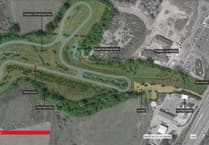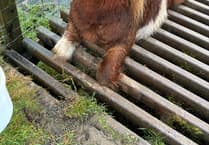STUDENTS at King Henry VIII School, Abergavenny have been advised to attend school despite the news that two members of staff have been confirmed as having the swine flu virus.
The school remained open for the last week of the school year as headteacher Nicholas Oaten confirmed that two staff members are being treated for the virus.
Mr Oaten said, We can confirm that two members of staff are absent from school as a result of exhibiting flu-like symptoms. These cases are being treated as swine flu.
The school will remain open and we urge parents to continue to send their children, but as a precaution we have postponed large group activities, which means, regrettably, that the planned rewards assemblies will be postponed until the new academic year.
Confirmation of the cases came as the Government announced plans to vaccinate the entire population against swine flu.
King Henry VIII School is following the latest guidance from the South East Wales (Gwent) Health Protection Team on swine flu which says, anybody who has flu like symptoms should contact their GP or NHS Direct by telephone.
Anyone who fears they have may the virus should not visit their doctors surgery unless specifically advised to do and it is advised that any pupil or member of staff presenting with symptoms should be sent home, told to contact their GP/NHS Direct as above and not return until their symptoms have cleared.
Advice to anyone not affected is to carry on as normal - this includes known contacts of people presumed to have the virus.
It is also felt that there is no need to close schools as the overall strategy as moved from infection control to the treatment phase.
There are now almost 10,000 laboratory confirmed cases in the UK including the 64 cases in Wales.
Director of the Communicable Disease Surveillance Centre, Dr Roland Salmon said that due being a particular type people have little or no immunity to the virus will eventually spread across the country.
He said, We have learned that, in the majority of cases it is mild although proving severe for a small minority.
Most people recover from infection without the need for hospitalisation or medical care.
As the virus seems to predominantly affect younger age groups, it is expected that we will see more cases in schools.
As with any feverish illness, children who are displaying flu-like symptoms, particularly if their temperature is raised, should not attend school.
If a child has had contact with someone diagnosed with swine flu and does not display any flu-like symptoms there is no reason for this child to be kept away from school.
We advise people to practice good respiratory and hand hygiene to reduce the chance of catching or spreading the virus.
People should not go to Accident and Emergency Departments or to their GP surgery as this may risk spreading the infection. It also places undue pressure on the emergency services.
Further information for the public is available on the Swine Flu Information Line on 0800 1 513 513



